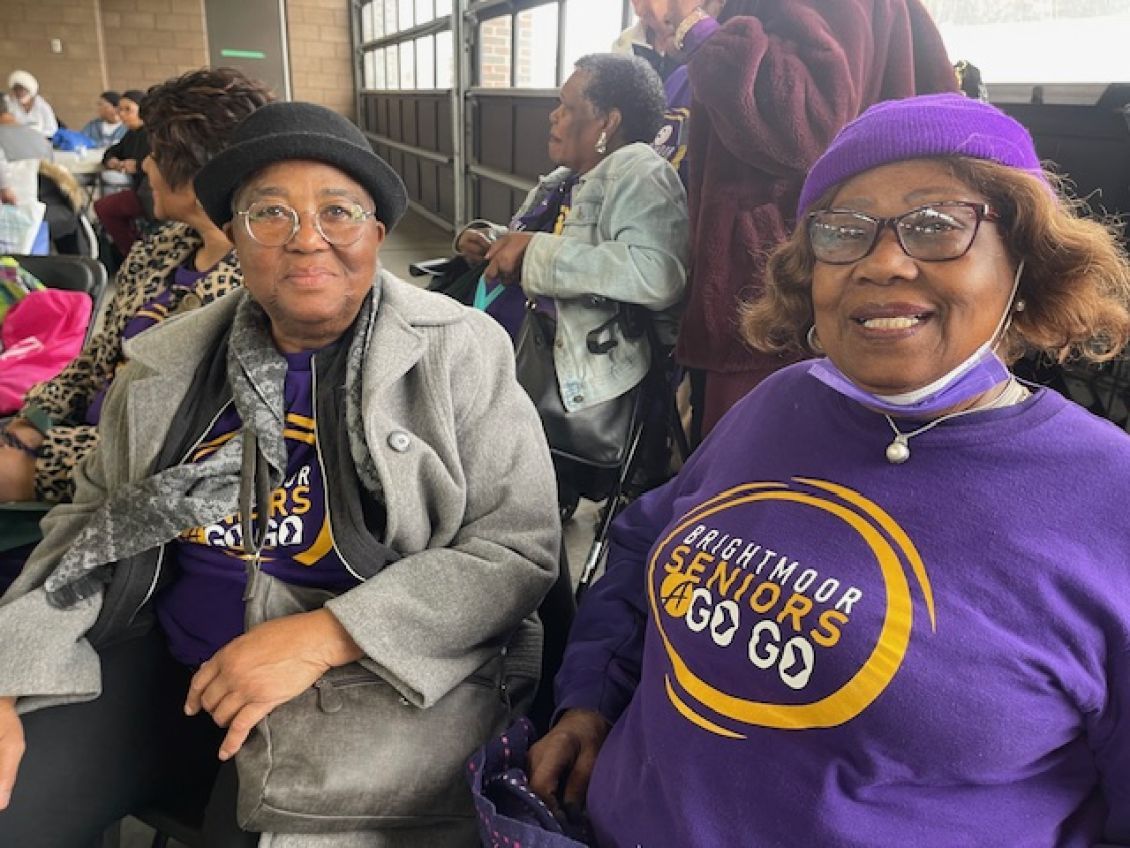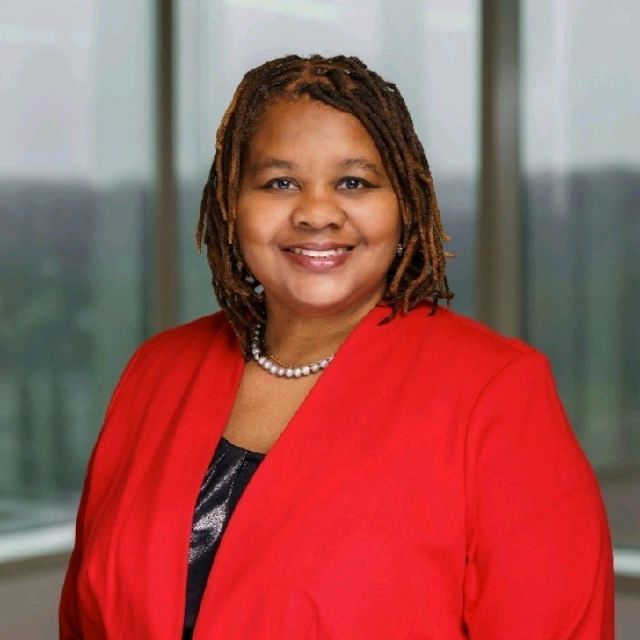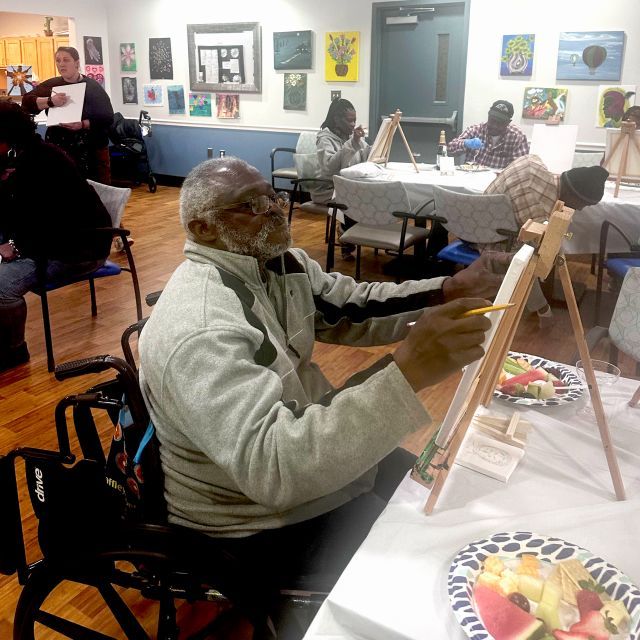As a 10-year-old growing up in a Baltimore suburb, Sue Wyche worked hard to learn the newest dance steps, even when kids taunted her for having no rhythm.
“I couldn’t dance well, I couldn’t even play sports – and the kids would laugh at me,” said Wyche. “I was determined though, and I never gave up because I just loved to move.”
Several decades later, as she pursued a career in finance, Wyche took a trip to Spain and saw a flamenco dance performance. When she returned to Baltimore, she signed up for a dance class, launching a years-long passion for ballroom dancing that continues to the present.
At 81, Wyche now performs in local ballroom dance competitions and shares her skills with fellow residents at Weinberg Village apartments in Owings Mills, Maryland. In her tidy, one-bedroom apartment, Wyche displays trophies and ribbons from dozens of dance competitions, as well as ornate, beaded gowns that she has hand sewn for various dance events.
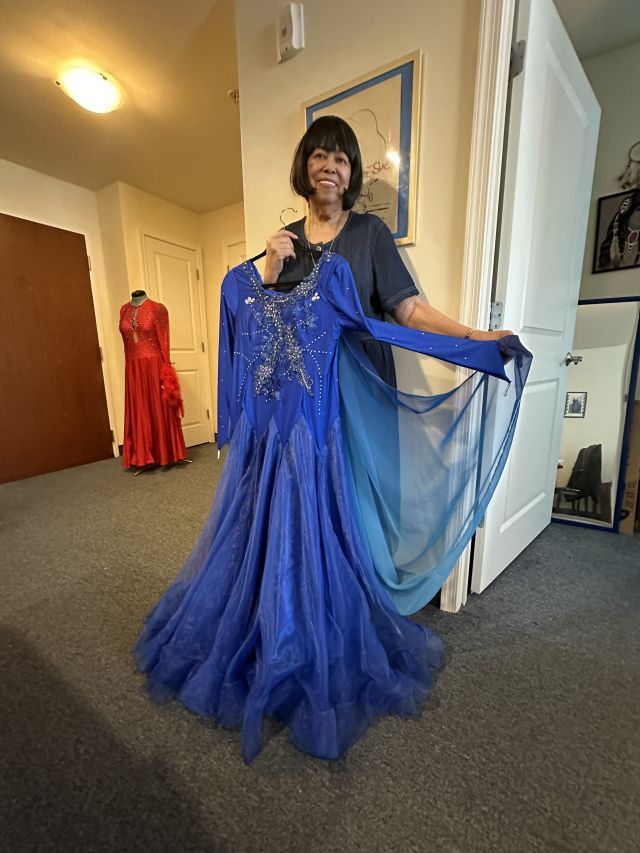
Wyche shares her dancing skills – and takes free piano lessons – through the nonprofit Iris Music Project, which brings music and performing arts to older adults. The organization recently received a grant from Enterprise’s Thome Aging Well program, funded by the Edward N. and Della L. Thome Memorial Foundation, Bank of America trustee, that helps older adults age safely and securely at home.
The Thome program awarded $6 million to Maryland and Michigan nonprofits in 2023, providing services and support to a population that is growing nationwide. There are currently some 62 million adults ages 65 and older living in the U.S., or 18% of the population. By 2054, 84 million adults ages 65 and older will make up an estimated 23% of the population.
“It’s clear that our society needs to focus on aging well, not just on aging,” said Stephany De Scisciolo, Enterprise’s vice president of Impact, Evaluation & Population Health. “It’s inspiring to hear stories like Sue’s, which help to dispel some of our fears about aging.”
Enterprise has awarded grants to a total of 38 organizations across Maryland and Michigan since launching the Thome Aging Well program in 2022, and a new round of funding focused on innovation will be awarded this year.
“We’ve given the grantees lots of flexibility in how they use those resources, both to continue to support programs that they know are working, but also to allow the organizations to pivot when there are emerging issues or opportunities,” De Scisciolo noted.
Finding Their Voice
On a recent rainy Wednesday morning in Detroit’s Brightmoor neighborhood, Evadney Clarke and Calmeta Strachan climbed into a school bus with a group of 20 other local women wearing purple T-shirts emblazoned with “Seniors A Go-Go.” Jacqueline Ford-Brazzle, community organizing supervisor for the Brightmoor Alliance – the nonprofit that runs the Seniors A Go-Go program – handed out snacks and took roll call as group boarded the bus that took them to a health fair at Detroit’s Eastern Market.
In 2017, when Clarke, now 79, found out her local senior center in Detroit’s Brightmoor neighborhood had abruptly boarded up its windows and closed, she got mad. Together with Strachan, 82, the two attended community meetings and spoke to their pastor, Rev. Larry Simmons. “There was a lot of talk about how to improve the area. But why wasn’t anyone talking about the seniors?” Clarke said. Clarke and Strachan brought their energy to help start Seniors A Go-Go, which organizes regular outings and events for a lively group of older adults, many of whom have become close friends. They have also spoken out in support of programming for older adults at meetings with Detroit city officials.
“The group in Brightmoor is a great example of how many of our grantees are using the funds not only to reduce social isolation, but also to help older adults regain their voice and power,” said Claire Louis, Enterprise’s director for the Thome Aging Well program.
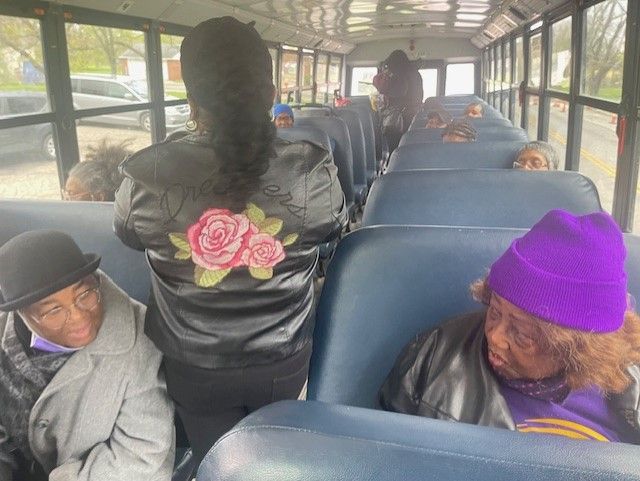
The Seniors A Go-Go members, most in their 70s and 80s, have built careers and raised children and grandchildren in the area – all as they have watched their neighborhood struggle to recover from disinvestment over the years. With funding from a Thome Aging Well grant, the group arranges bi-weekly outings to plays, museums, and events around the Detroit area.
“We look out for one another,” Clarke said about the group. “We have a lot of fun, and we’re stronger together. We also care about this neighborhood and as a group we feel like we can make a difference.”
Dancing Outside the Box
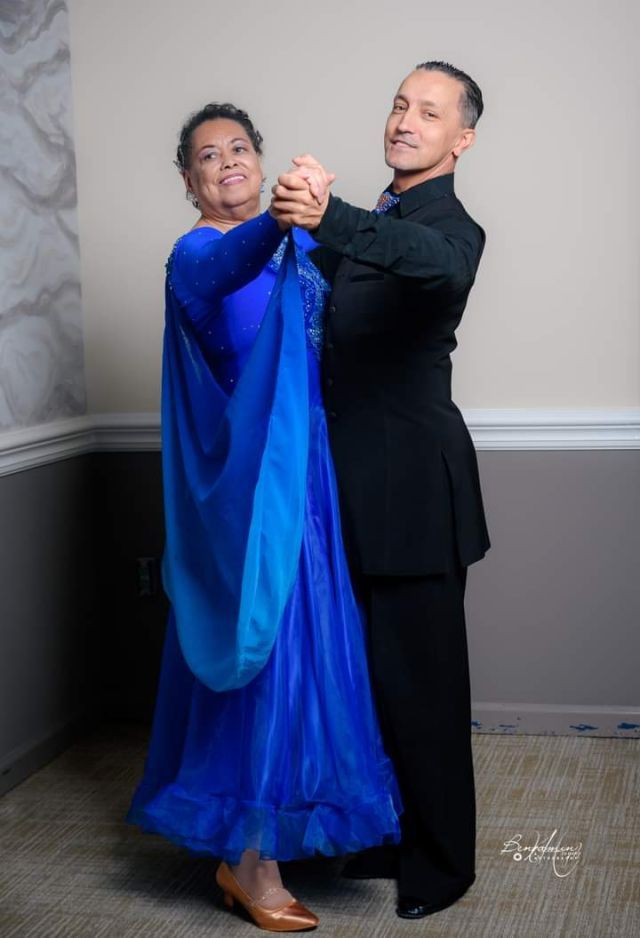
Sue Wyche traces her interest in dance – and music and the arts more broadly – to her early childhood, when she would go downstairs to take piano lessons from her godfather, Mr. James, who lived in her family’s apartment building. “My mother told me to come back upstairs and that I didn’t need to learn music,” she said. “But I wanted to learn something new, so I kept on sneaking down there.”
Wyche also showed an early talent for painting and drawing, and she displays finely etched pencil portraits that she has drawn over the years. “I have always felt that I’m an artist at heart, but I was told that I couldn’t be,” she said. “That was not a field that was open to young Black women at that time when I was growing up.”
Still, she says encounters with artists – from famous singers to accomplished dancers – have shaped her life, during her career and into retirement. In Los Angeles for a brief period in the 1970s, she remembers running into Smokey Robinson at a party. “I looked up – there he was – I was looking right into Smokey Robinson’s blue eyes. He was my hero and I felt so inspired.”
Years later, Wyche’s eyes light up as she recounts this memory. She remains inspired and she encourages other older adults to try new things, even if they aren’t sure of their abilities. “I’m just one of those people who likes to take chances and I encourage other people to do that too,” she said.
“Sometimes when I’m getting ready for a competition, I think about those friends who used to laugh at me,” Wyche added. “Then I tell myself, they can come watch me dance right now.”
